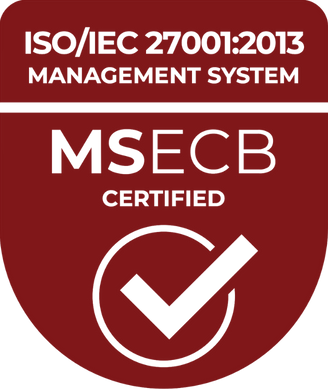Future-proof your business: steps towards an efficient, up-to-date, and sustainable consulting practice

Welcome to the fifth and final part of our series on the hybrid consultant. In previous posts, we have discussed what the hybrid consultant role entails, how it creates value for clients, consultants, and consulting firms, and how generative AI and digital tools are revolutionizing our work. In this concluding post, we focus on the future and the changes needed to adapt to this new reality.
An industry in strong transformation
The consulting industry is facing a significant transformation driven by technological development and increasing demands from clients who want fast, efficient, and cost-effective solutions. Embracing the hybrid consulting model is no longer a choice – it is a necessity for survival and continued relevance in an increasingly digitalized world that is constantly and complexly changing.
To succeed in this transformation, we need to adapt our working methods, strategies, and corporate cultures to integrate AI and digital tools at the core of our business. But it is also – perhaps even more – about retaining and strengthening the human qualities that make us successful consultants: our ability to understand context, build relationships, and create creative, tasteful, and ethical solutions that engage the business’s stakeholders.
Steps towards the consulting practice of the future
Here are some key areas where we as consultants and consulting firms must focus to transition and prepare for the future:
1. Invest in learning and skills development
To fully utilize AI and digital tools, we must continuously develop our skills. This means investing in education and skill development to stay updated on the latest technological advancements and how they can be applied in our work. By combining technical competence with our human strengths in a constantly learning organization, we can create an unbeatable consulting profile. This leads to increased efficiency and employee engagement, as well as increased customer value.
2. Ethical Guidelines and Responsibility
It is crucial that we integrate ethical guidelines in our use of AI and digital tools. As consultants, we have a responsibility to ensure that technology is used fairly and responsibly, and that our solutions respect the privacy and rights of our clients and their stakeholders. We must also ensure that the algorithms underpinning AI do not have inappropriate biases. By actively working on these issues, we can build trust and ensure sustainable and ethical consulting services, supporting sustainability in both social and economic aspects.
3. Adapt the Business Model
We must continuously review and reshape our business models to better reflect the value-based delivery that the hybrid consulting model entails. This can include moving away from traditional hourly billing models to more flexible and value-based compensation models, which strengthen collaboration with our clients and create long-term value. This creates new offerings and earning opportunities, as well as increases customer satisfaction.
4. Strengthen Customer Collaboration
AI and digital tools give us the opportunity to work closer with our clients than ever before. By leveraging AI capabilities, we can offer more precise and tailored solutions while improving communication and collaboration. This builds stronger relationships and increases trust among our clients, which in turn leads to more and happier customers.
5. Develop Your Structural Capital
To reduce dependence on individual employees and build substantial and valuable structural capital, it is important to develop and document the company’s processes and tools. By building up strong structural capital, we can work faster and more modularly, facilitating both onboarding and offboarding of staff. This allows for licensing parts of our structural capital, building new services on top of it, and creating white-label solutions. By investing in structural capital, we can create long-term value and increase the business’s attractiveness to potential buyers. It also leads to a more scalable and flexible business that can more easily adapt to changes.
6. Collect and Use Data. Always!
Data is an invaluable resource in today’s digital world, and it is crucial that we systematically collect and use all available data. In meetings and workshops, this means recording and transcribing, documenting with sticky notes in digital tools like Miro, capturing comments from video conference chats, and filming as much as possible. Moving material becomes increasingly valuable, and photos and images can be used in various contexts and analyzed by AI. It is also important to collect audio recordings, spreadsheets, and other internal data. Add relevant external data to your internal data. This may include market and competitor data, economic indicators, and industry-specific research and detailed reports that provide insights for strategic planning and decision-making. By systematically collecting and using internal and external data, we can build our own GPT and other AI solutions that enhance our operations and give us a competitive advantage. Collected data also creates opportunities for new and deeper insights and enables more well-founded decisions.
7. Promote a Culture of Innovation
To truly benefit from the hybrid consulting model, we must create a corporate culture that encourages innovation and experimentation. This means being open to new ideas, testing new technologies, and continuously seeking ways to improve our processes. By promoting an innovative culture, we increase the value of our deliveries and contribute to learning, both within our own organization and for our clients. This supports sustainability by creating long-term and efficient solutions. A clear example is the so-called twin transition, where digitalization and sustainability go hand in hand, showing that innovation can not only improve our business results but also lead to greater environmental sustainability.
Sign up for our hybrid consultant program
The feedback and interest we’ve received regarding the hybrid consultant have shown that there’s a significant need to elevate the consulting industry on this issue. This has led us to develop a new training program – so if you’re ready to step into the future and begin the journey towards hybrid consulting – check out: Become the consultant of the future – become a hybrid consultant that helps you, your consulting firm, or your organization, start working according to hybrid consulting logic. In the program, we’ll delve deep into how you can implement AI and digital tools into your work, while also describing how we can enhance the human skills that are crucial for success.
Sign up for our Hybrid Consultant program today and become part of a new wave of consultants ready to embrace change and create the consulting services of the future. Customers will appreciate it, we’re sure, and it will contribute positively both to you and your consulting firm in the short and long term. We also have a webinar on June 26 where we talk about the Hybrid Consultant and the program.
Join the discussion here. We look forward to exploring these new opportunities together with you.
With this post, we conclude our series of five posts about the hybrid consultant. If you would like a white paper with all the posts regarding the Hybrid Consultant – sign up here. It’s encouraging to see how well this series of posts has been received. We have received many cheers and great recognition, and we feel encouraged to continue engaging in the issue. Among other things, we will join forces with Cinode later this autumn. So… stay tuned as they say, and keep an eye on LinkedIn!
Until we speak again, reflect on what changes you see as necessary in your business to integrate human and technical aspects successfully. What challenges and opportunities do you see in becoming hybrid consultants? What happens if you don’t act? Feel free to share your thoughts and questions with us. We’ll talk again soon! /Joakim Jansson and Johan Forsberg, DigJourney
PS: If you’re curious to try Changemkr, our SaaS for transformation, visit Changemkr.com and sign up to find out when we open up. Or if you can’t wait, email joakim@digjourney.com!
How Will AI Impact the Consulting Industry?
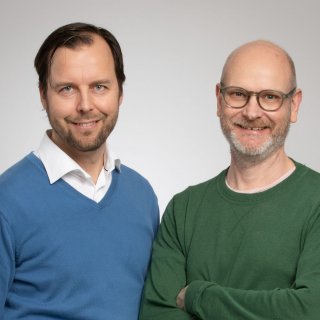
Guest Blogger - Joakim Jansson and Johan Forsberg from DigJourney
Guest Blogger - Joakim Jansson and Johan Forsberg from DigJourney
You may also like...
All posts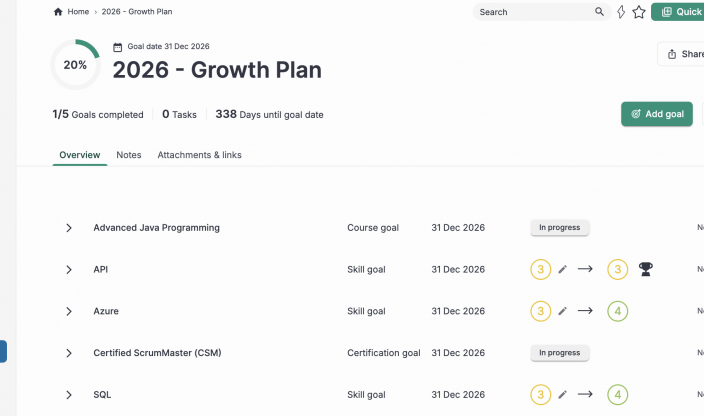
Jan 29 2026 · Cinode, Cinode, Consulting, Konsult
Ready for 2026? How to build a development plan that closes your skills gap
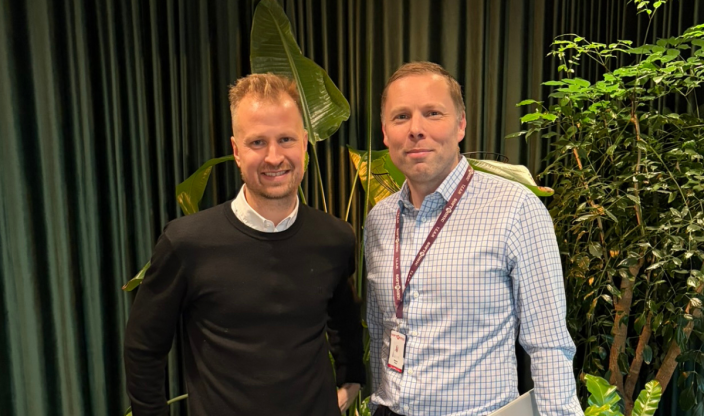
Jan 21 2026 · Consulting
Softronic’s New CEO Mattias Flock: “I Love Creating Things — That’s Why Growth Excites Me”

Dec 18 2025 · Consulting
Santa’s Letter to the Consulting CEO

Dec 15 2025 · Consulting
Building a High-Performing Consulting Firm
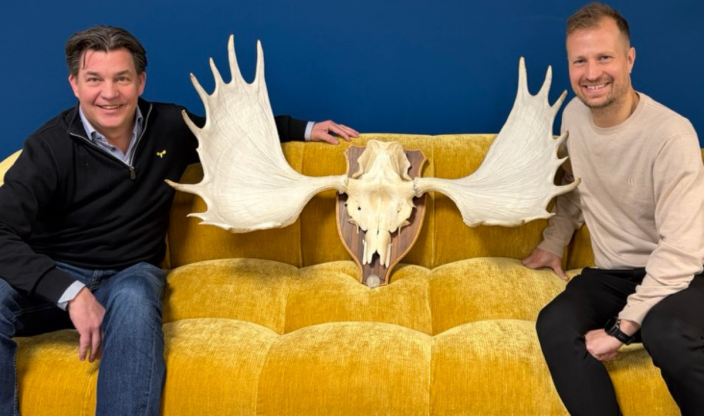
Dec 01 2025 · Consulting
🏆Yellow Elk Sweeps All Three Awards at Konsultkollen 2025

Oct 10 2025 · Consulting, Entrepreneurship
🚀 The Head of Analysis: Seven Success Factors for Consulting Firms 2025–2030
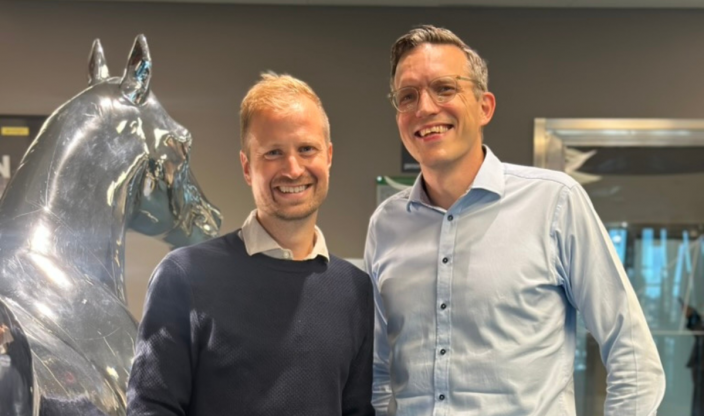
Sep 10 2025 · Consulting
“It’s About Growing Right – Not Fastest” – Netlight Scales Up with Culture and AI in Focus

Aug 21 2025 · Cinode, Consulting
🚀 A Clear View and Fast Execution – Our Journey with Cinode

Apr 30 2025 · Consulting
Understanding the psychology behind pricing

Apr 15 2025 · Consulting
How to set (the right) price?

Mar 18 2025 · Consulting
How do we charge for the value of our services?

Mar 11 2025 · Consulting
